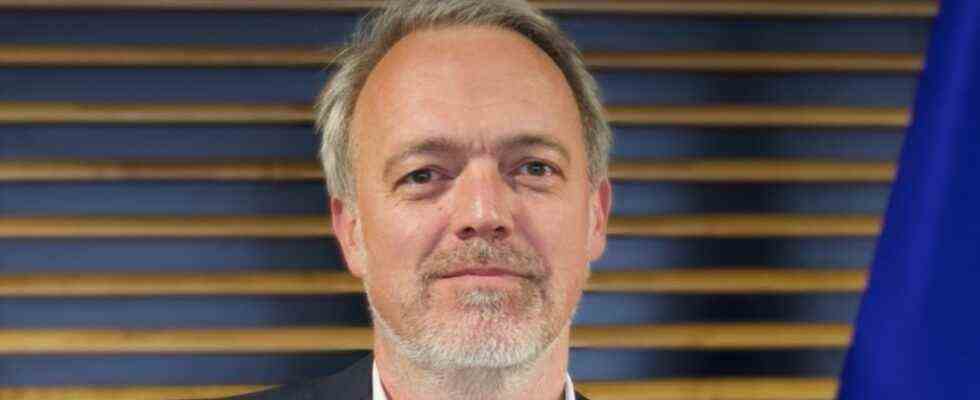Werner Stengg is an economist and has been a digital and European politician for many years. And he’s a realist. Compete with the big American digital corporations with European alternatives? No, it’s too late for that, says the Austrian, who is responsible for digital issues in the cabinet of EU Commissioner Margrethe Vestager. At the Munich Economic Debates, organized by the Ifo Institute and the Süddeutsche Zeitung, Stengg explains how the EU intends to achieve its ambitious goal, which is: fit for the digital age.
Data, of course data, data “in incredible amounts”, they are the basis for connecting the digital with the traditional strengths of Europe: with production, often carried out by medium-sized companies with high competence. The data at stake is different than the often personal data collected by Google and Facebook. It is data from sensors in machines, from the so-called Internet of Things, from networked buildings and devices.
This data would have to be used better, for example to improve processes or to do more for climate protection. Stengg believes that there is “incredible potential for the economy and society” in this. But for the data to work, trustworthy platforms would have to be created. “We need a plan on how we can position ourselves better.” In all of this, it is also important to Stengg that the values of Europe are also reflected in the design of such platforms: data protection, freedom from discrimination and equal opportunities.
Citizens increasingly felt like milking cows for data
Stengg is certain that if regulation with these specifications is made intelligently, it will not hinder digitization. But if, for example, an artificial intelligence is not transparent, there is resistance to it. Citizens increasingly feel like milking cows for data, which is why more control is needed here.
But why does this digitization have to be at all? Isn’t it possible without it, just like before? Not in this world where the internet has transformed itself into an entity where big platforms dictate the rules of the game. The digital corporations have “an incredible amount of power,” says Stengg. They are not transparent and also refuse to take responsibility for what happens on their platforms.
To counter this, a strategy is more important than ever. For Stengg, this must do the following: Strengthen the basic skills in dealing with digitization, create the infrastructure – from broadband networks to quantum computers. Small and medium-sized companies must be supported in digitization and public administration has to catch up enormously. The EU has set specific targets for these points.
But does regulation have to come from Brussels? Yes, says Stengg, because one country alone can hardly put pressure on the big corporations, but the EU with 450 million wealthy citizens can. “If we as the EU come up with a legal framework, then that will have an effect.” So far, however, not enough progress has been made in Europe: When it comes to money, the means for digitization are often the first to be sacrificed, says Stengg. The pandemic has now shown the deficits painfully.
Now it is important not to restore the structures of the past. Germany has so far remained below its potential on this path. In the next ten to 20 years, the economy in this country will have to change significantly. “It’s not too late yet,” says Stengg, “but there’s not much time left.”
Meanwhile, the EU wants to defend itself against the corporations with a catalog of things that the companies are forbidden to do. But these rules would have to be enforced. Stengg doesn’t think much of measures like nationalization, but he does believe in a fairness test that involves major interventions. However, the EU does not want to run a company like Google or Amazon itself.

